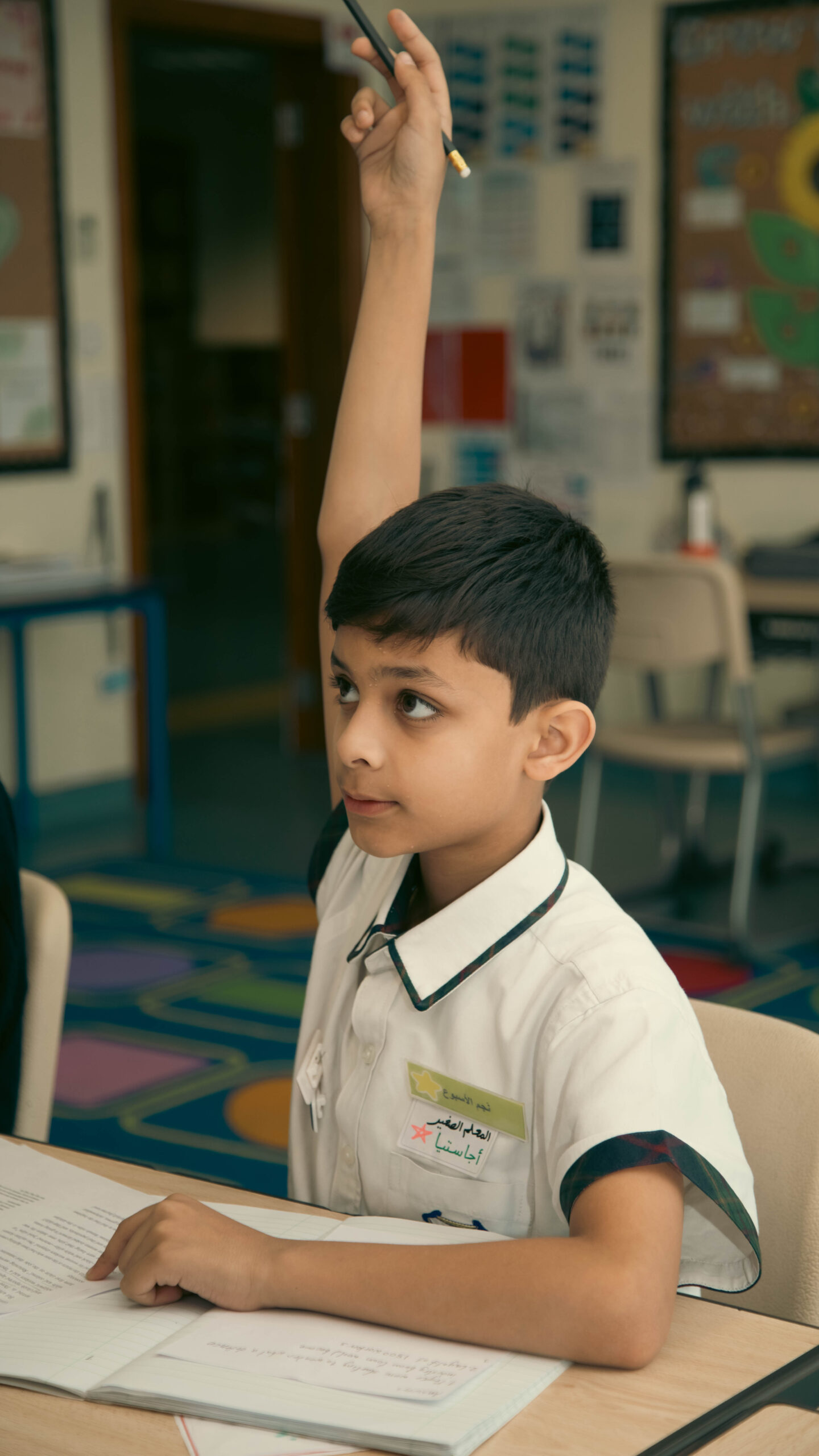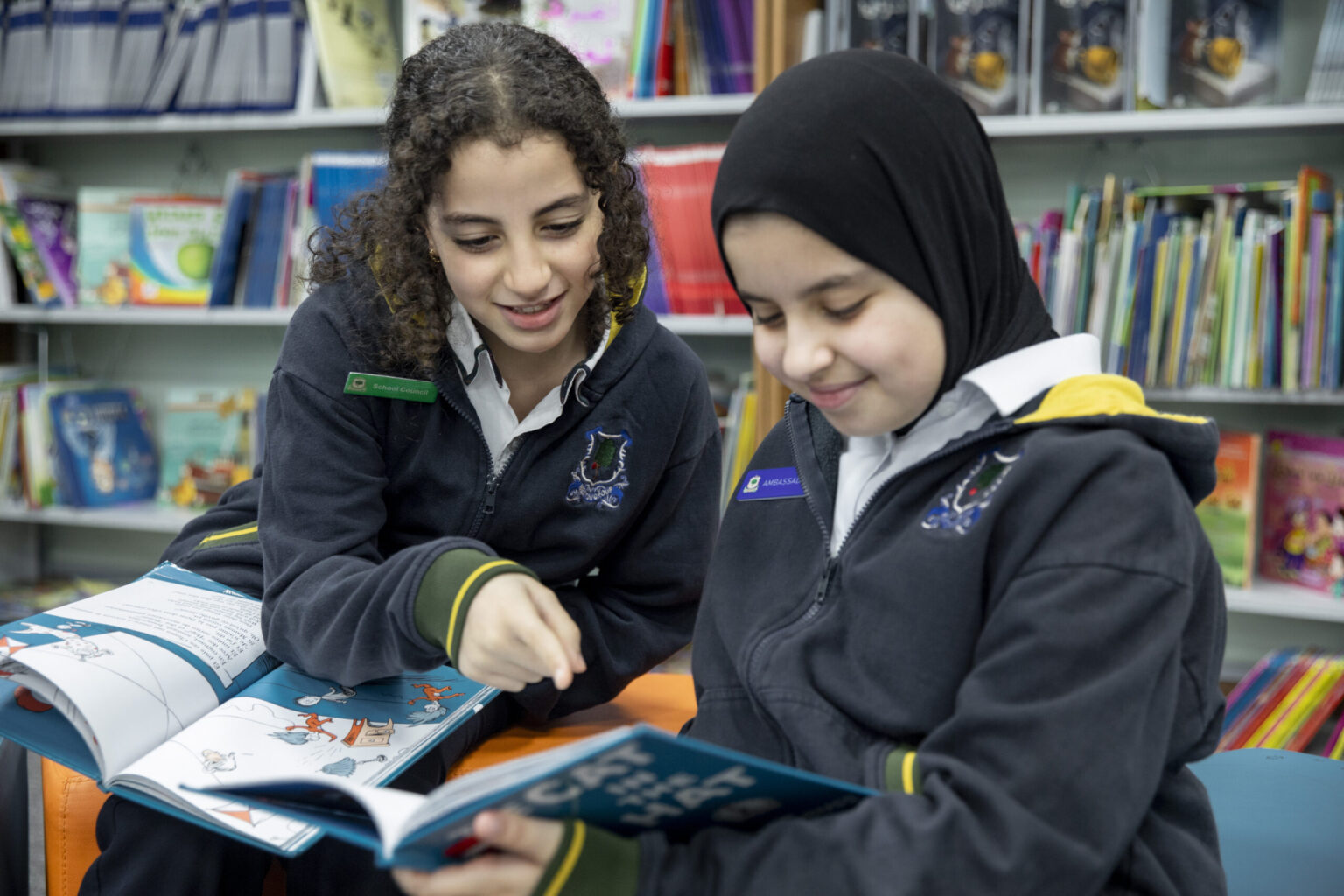- registrar.nba@newtonschools.sch.qa
- +974 334 927 68

Our Primary Schools include Year 1 to Year 6 across Key Stage One and Key Stage Two. As our students transition from Early Years to the Primary School, they continue to grow as independent learners. Class teachers and subject specialists work together to develop and stretch each child’s thinking, develop their abilities to observe, question and engage in investigative work across all curriculum areas.
As the students grow and continue to learn, they build on their abilities to be more independent in their, we continue to stretch the range of challenges that they are exposed to. They are encouraged to explore key topics across all the subject areas available, and build their depth of understanding.
Our contextual teaching style enables our students to continuously make real world connections, to allow their learning to come alive and ensure that the skills that they learning are not forgotten as they move forward through the school. Our aim is to connect thoughts and learning to the real world in which our children live.
| English | History | Mathematics |
|---|---|---|
| Arabic 1st Language – Native speakers | Art/ Design & Technology | Geography |
| Arabic 2nd Language – Non native | ICT | Science |
| Citizenship | Islamic Studies – Muslim Students | French |
| Philosophy for Children (P4C) | Qatar History– Arabic/English | Music |
| Physical Education (PE) |

The English National Curriculum provides children with a broad and balanced education that helps them develop the knowledge, skills, and understanding they need to succeed in school and in life. It is designed to support every child by giving clear steps for progress in each subject.
The curriculum encourages children to think, question, and apply their learning to real-life situations. It promotes creativity, problem-solving, and working with others, as well as building confidence and independence. Alongside academic subjects, it also helps children develop social, moral, and cultural awareness, preparing them to be respectful, responsible, and active members of their community and the wider world.
The purpose of study is to ensure that all children have the opportunity to reach their full potential, both academically and personally, in a supportive and inclusive environment.
At The Newton Group, we offer the English National Curriculum which is carefully adapted to our Doha context. Our focus is on delivering excellent academic standards while also developing 21st Century skills and strong moral values.
We provide a broad and balanced curriculum that meets the needs of all students, regardless of ability, culture, or nationality, and encourages a genuine love of learning. The curriculum equips students with the knowledge, skills, and understanding they need to make informed choices in life and succeed in an ever-changing world.
Through a holistic approach, we nurture curiosity, communication, and emotional growth. Alongside the core English National Curriculum subjects, students also study Arabic, Islamic Studies, and Qatar History, ensuring a well-rounded and culturally rich education. All subjects are listed below:
| English | Mathematics | Science | Arabic |
| Information Technology (IT) | History
| Geography | French |
| Islamic Studies or Citizenship | Physical Education (PE) | Art & Design | Character Education |
| P4C | Phonics | Library Lessons | Qatar History |
Our Primary School covers Year 1 to Year 6 and provides children with a broad and balanced education. It includes core subjects (English, Mathematics and Science) and a wide range of foundation subjects, taught by both class teachers and specialist teachers.
Throughout Primary, children not only gain knowledge but also develop important life-long skills such as independence, resilience, and critical thinking. Learning is made meaningful by bringing it alive—making strong connections to real life and, where possible, taking it beyond the classroom through practical experiences, projects, and enrichment opportunities.
Our aim is to inspire curiosity, creativity, and a love of learning, preparing every child to thrive both in school and in the wider world.
The programmes of study for reading at key stages 1 and 2 consist of two dimensions:
The programmes of study for writing at key stages 1 and 2 are constructed similarly to those for reading:

"*" indicates required fields
"*" indicates required fields